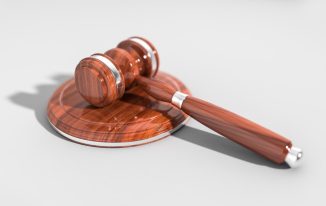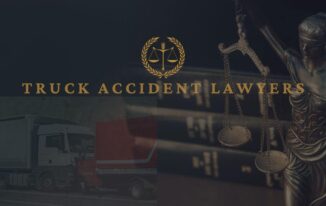Losing a loved one in a fatal collision is a devastating experience, leaving families to grapple with profound emotional pain and unexpected financial burdens. When such a loss results from someone else’s negligence, a wrongful death claim provides a means to seek justice and hold the responsible party accountable. These claims are also vital for securing financial support for surviving family members during a challenging time.

Understanding the complexities of wrongful death claims is essential for families pursuing justice. From determining who is eligible to file a claim to establishing liability, each stage demands careful attention to legal procedures. Key aspects of wrongful death claims in fatal collision cases shed light on how these legal avenues can support grieving families in their journey toward healing.
Who Can File a Wrongful Death Claim?
In wrongful death cases, eligibility to file a claim is typically limited to close family members. This often includes the deceased person’s spouse, children, or parents in Oklahoma. If none of these individuals are available, a representative of the deceased’s estate may be able to bring the claim on behalf of the family.
Restricting eligibility ensures that only those most affected by the loss are involved in the legal process. Families must also act within the statute of limitations, which sets a deadline for filing a wrongful death lawsuit. Consulting an experienced attorney can help clarify eligibility and ensure the case is filed on time.
Recognizing Negligence in Fatal Collisions
Identifying negligence is the cornerstone of any wrongful death claim. Fatal collisions often stem from reckless actions, such as impaired driving, speeding, or failure to follow traffic laws. These behaviors demonstrate a disregard for the duty of care that all drivers owe to others on the road. In fatal car accident cases, proving negligence involves gathering evidence and establishing a clear connection between the at-fault party’s actions and the tragic outcome.
This process requires a thorough investigation to uncover critical details. Evidence such as police reports, traffic camera footage, and eyewitness testimony can provide the foundation for a strong claim. Expert analysis, including accident reconstruction, further supports the case, helping families seek justice for their devastating loss.
Financial Implications of Losing a Loved One
The financial repercussions of a fatal collision extend far beyond immediate medical and funeral expenses. Families often face long-term economic challenges, such as the loss of income and benefits the deceased would have provided. These losses can destabilize households and create additional stress during an already overwhelming time.
Wrongful death claims address these financial burdens through compensation that accounts for lost earnings, future financial contributions, and other monetary impacts. Understanding the full scope of these losses is essential to pursuing a fair and comprehensive settlement or verdict.
Emotional Impact of Wrongful Death Cases
The emotional toll of losing a loved one in a fatal collision is profound, affecting every aspect of a family’s life. Survivors may experience grief, anxiety, depression, or even post-traumatic stress as they navigate their loss. Wrongful death claims acknowledge these emotional hardships through non-economic damages like loss of companionship and mental anguish.
While no compensation can fully heal these wounds, seeking justice can provide a sense of closure and help families move forward. Acknowledging the emotional impact underscores the importance of pursuing accountability for the negligent actions that caused the loss.
How Wrongful Death Laws Promote Accountability
Wrongful death claims serve a broader purpose beyond financial compensation. Holding negligent parties accountable through the legal system reinforces the societal expectation of responsible behavior. This accountability discourages others from engaging in similar reckless actions, ultimately promoting safer communities.
Public awareness of wrongful death cases can also bring attention to systemic issues, such as inadequate road infrastructure or gaps in law enforcement. These claims deliver justice to grieving families and drive improvements that benefit the entire community.
Building a Strong Case Through Expert Testimony
Expert testimony is often a decisive factor in wrongful death claims stemming from fatal collisions. Specialists such as accident reconstruction experts, medical professionals, and economists provide valuable insights that strengthen the case. Their analysis helps establish liability, quantify damages, and clarify complex details for the court.
Accident reconstruction experts, for instance, can recreate the events leading up to the collision, offering a clear picture of how negligence contributed to the fatality. This level of detail is critical in building a persuasive case that secures justice for the surviving family members.
The Role of Insurance Companies in Wrongful Death Claims
Insurance companies often play a central role in wrongful death cases, as they are typically responsible for compensating the victim’s family. However, insurers may attempt to minimize payouts or deny claims, adding another difficulty for grieving families. Navigating this process without legal guidance can be overwhelming.
An experienced attorney ensures families are not taken advantage of during negotiations. They advocate for a fair settlement that reflects the full scope of the family’s loss, providing much-needed financial relief during a challenging time.
How Wrongful Death Settlements Impact Future Generations
Securing a wrongful death settlement or verdict can provide long-term stability for the surviving family members, especially children. Compensation often includes funds for future expenses such as education, healthcare, and daily living costs. This financial security allows families to rebuild and ensures a brighter future for younger generations.
Beyond immediate financial relief, these settlements also serve as a reminder of the importance of justice and accountability. Families can use the outcome to educate others about the importance of safe driving and responsible behavior, creating a lasting legacy for the loved one they lost.
Advocating for Legislative Changes Through Legal Action
Fatal collision cases often highlight the need for changes in traffic laws or infrastructure improvements. Families involved in wrongful death claims can use their experience to advocate for stronger protections, such as stricter penalties for impaired driving or improved road safety measures.
This advocacy not only honors the memory of their loved ones but also contributes to a broader effort to reduce fatal collisions in the future. Through legal action and public outreach, families and their attorneys can spark meaningful change that protects others from similar tragedies.



